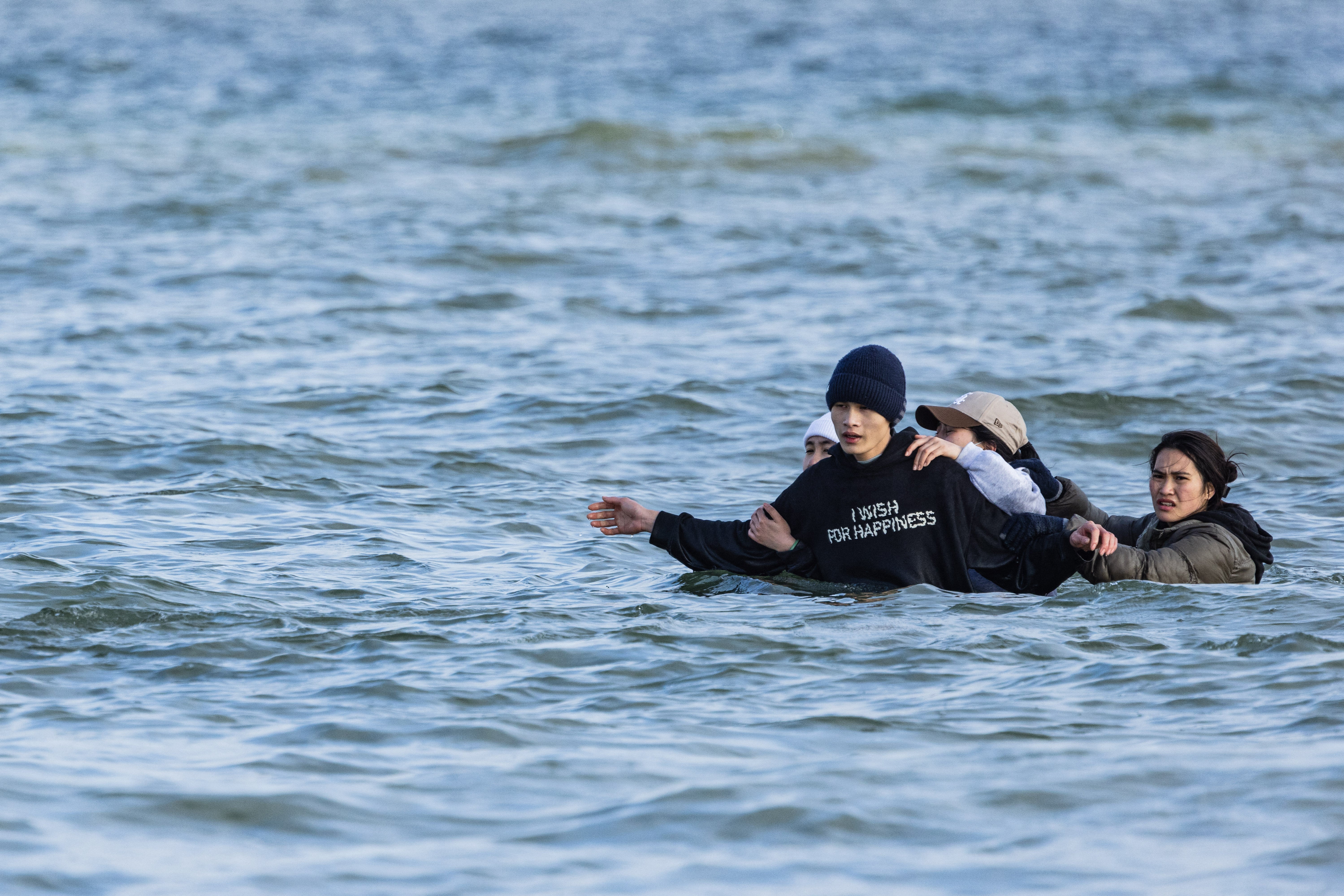We have persuaded France to change rules to stop migrants reaching Britain, Cooper says
France has agreed to intervene to stop migrants boarding dinghies in French waters in change of policy, UK home secretary says

French police will intervene to stop migrants getting on to small boats when they’re in the water after the UK “persuaded France to change its rules”, the home secretary has said.
Small boat smugglers have been picking up migrants from the sea rather than French beaches in the latest attempt to evade police.
Yvette Cooper said on Tuesday that smugglers are using the dinghies as “taxies”, launching much further up the French coast and then travelling down to beaches closer to the UK to pick up migrants.
Migrants then wade or swim out to clamber aboard the small boats in the water, rather than getting on the dinghy from the beach. These tactics have been particularly effective at evading the French police, as the authorities currently don’t intervene once migrants are in the water, Ms Cooper explained.
The home secretary told BBC Radio 4’s Today programme that the UK has recently “persuaded France to change its rules”. The French have agreed to intervene once migrants are in the water to stop the crossings, but the plan has yet to be put into action, Ms Cooper added.

She explained the trend, saying: “We have to go after the gangs. One of the things that they are increasingly doing is described as ‘taxi boats’. The boat is launched much further up the coast, travels down the coast, and then picks people up from the water.
“If people are already in the water, then the French authorities currently don’t intervene. Those are their rules which they’ve had for a long time. They don’t intervene in French waters. We’ve now persuaded France to change its rules. That’s gone through cabinet now. They’re changing their rules so that they can intervene in French waters to stop boats crossing, that’s hugely important. It’s not in place yet but it’s step by step, practical things like that.”

She said that the changes would come in “over the next few months”.
The number of people who have crossed the English Channel in small boats so far this year has now exceeded 10,000. Last year, this milestone was reached about a month later, on 24 May.
Ms Cooper said that a high number of good weather days has had an impact on the level of crossings.
She said the “criminal smuggler gangs ... are also taking advantage of the very high of calm weather days. This has been much higher than previous years. We can’t carry on in this situation. The reason we are ending up in a situation with border security being affected by the weather is because of the way in which these gangs have taken root.”
The Home Office announced on Tuesday that migrants convicted of sexual offences will be banned from claiming asylum in the UK.
Under the Refugee Convention, countries are able to refuse asylum to those who have committed “particularly serious” crimes and are a danger to the community, with the provision currently used to block claims from criminals handed prison sentences longer than one year.
Sir Keir Starmer’s crackdown will extend the provision to include anyone convicted of a crime which places them on the sex offenders register, regardless of the length of their sentence.
Join our commenting forum
Join thought-provoking conversations, follow other Independent readers and see their replies
Comments